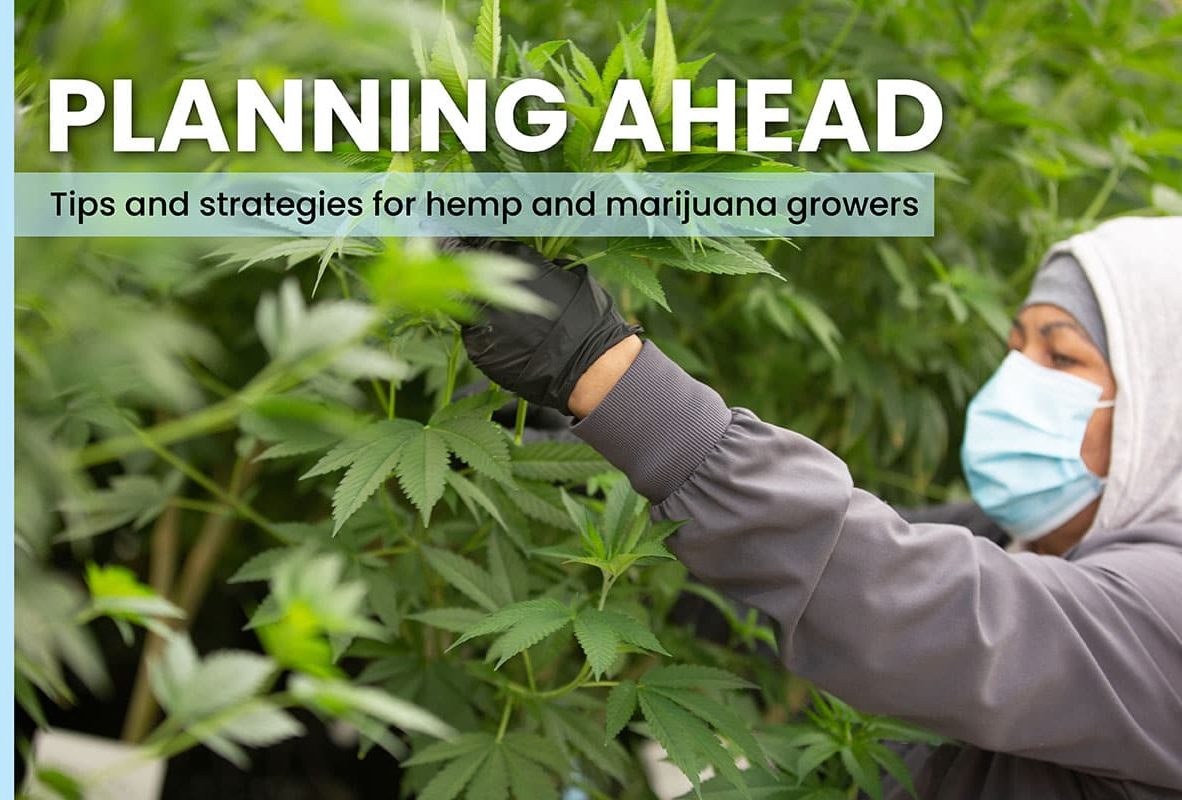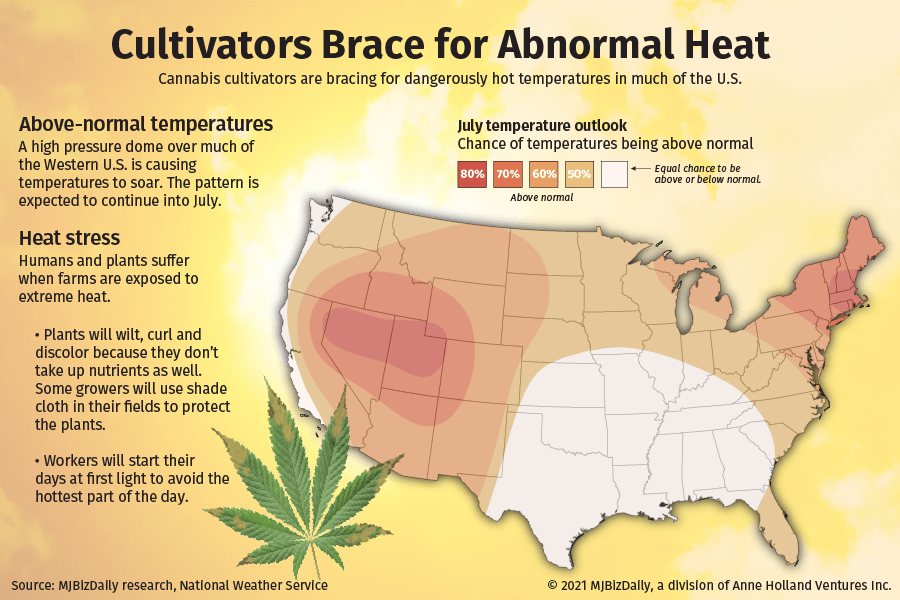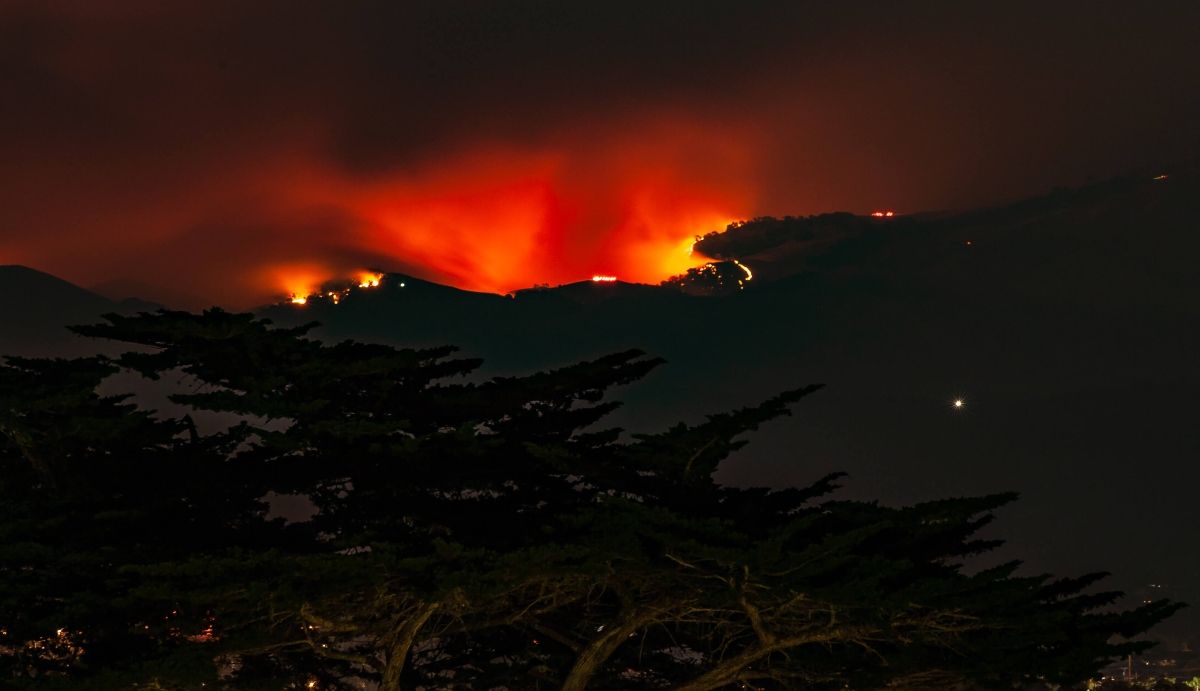As a response to several concerns from outdoor cannabis growers in Colorado, state lawmakers took forward-thinking action earlier this year that likely will help cultivators succeed in a few key areas.
The most relevant law is House Bill 21-1301, passed in June, which helps growers:
- Deal with unpredictable weather events such as early snowstorms.
- Participate in discussions, through the creation of working groups, about how to reduce cross-pollination between hemp grown for seed and grain and marijuana and hemp grown strictly for cannabinoids.
- Position themselves for success in the event of federal legalization.
Planning for bad weather
Allowing marijuana cultivators to create contingency plans to reduce crop loss because of adverse weather will be a large help, especially for outdoor growers in southern Colorado.
For example, in 2020, marijuana and hemp growers reported heavy losses – in the millions of dollars – after a September snowstorm and freezing temperatures hit early and plants were still in the field.
Hypothetically, had growers been able to quickly cut down plants and store them in a neighboring facility, more of the crop would have been saved.
But that neighboring shed might not have had the required cameras, for instance, for the grower to stay in compliance, so that wasn’t an option.
This law would allow growers to create an emergency plan and get it approved by the Marijuana Enforcement Division to remain compliant.
“If you’re going to have an industry where the state is benefiting from a crop a farmer is growing, the farmer should be able to take steps to protect their crop from adverse weather,” said Henry Baskerville, managing partner of Denver-based Fortis Law Partners.
“It’s only going to get worse as Colorado gets more swings in extreme weather from climate change.”
Attorney Jordan Wellington with cannabis-centric law firm Vicente Sederberg in Denver commended Colorado lawmakers for the forward-thinking policies and said he’s not aware of any other state with a legal marijuana program working on similar legislation.
He considers the law to help cultivators with adverse weather an “emergency relief valve” for growers.
Kim Stuck, founder of cannabis consultancy Allay Consulting, which has offices in Denver and Portland, Oregon, said the law was “absolutely needed.”
With climate change, there’s no predictability to the weather anymore and growers should be allowed to move their crops, she said.
By comparison, Stuck mentioned the wildfire problem on the West Coast, where some growers in Oregon watched a fire move over a hill but were unable to do anything to save their crops because of compliance regulations.
“That puts people in a very tight situation,” she added.
Cross-pollination
The law also creates a working group to discuss cross pollination, where a field of female plants – marijuana or hemp – is inadvertently pollinated by a neighboring crop of male plants, spelling disaster.
And this isn’t a marijuana-versus-hemp situation.
Hemp growers targeting the seed, grain and fiber markets could inadvertently pollinate hemp cultivators growing only for CBD just as easily as they could THC marijuana growers.
Although there aren’t many clear fixes, the working group is an important step in solving this difficult problem.
“The beauty is to gather the experts,” said Rick Trojan, vice president of the Hemp Industries Association and a hemp grower based in Denver.
He suggested that state regulators could require cultivators to stagger their growing cycles so that the seed-producing plants aren’t harvested at the same time as the feminized plants.
But the logistics of doing that would be difficult to work out.
Buffers are also often brought up as a possible fix, but pollen can travel miles and has been known to even infiltrate indoor cannabis operations.
Baskerville pointed out that the majority of hemp being grown in Colorado is for CBD production and, thus, needs protection.
He suggested that marijuana and hemp farmers need to be closely involved in discussions to help shape the legislation, “as they’re the ones who understand the issue the best.”
The working group is required to include more than 15 members, including marijuana and hemp growers.
Stuck was reassured by the list of required members, saying it looked to be a diverse group.
“Without having farmers involved in this conversation, they were going to do the wrong thing, and they know it,” she said.
Wellington agreed.
“If Colorado wants to be a leader in hemp and cannabis cultivation, we need to figure out how these plants can coexist side by side,” he said.
“The state that figures this out will have a significant advantage.”
Interstate commerce
Other markets such as Oregon have already approved legislation that would allow cannabis companies to send product over state lines in the event of federal legalization.
Wellington hopes that the working group will help position Colorado to be more successful if interstate commerce becomes a reality.
“One day, Colorado will compete with other states in a national and potentially international cannabis market,” he said.
Stuck finds it refreshing that Colorado is thinking ahead and trying to help the industry be successful once marijuana is legalized at the federal level.
She expects the working group will evaluate current marijuana laws and how potentially amending them could make the transition easier.
Interstate commerce could play out like the alcohol industry, according to Stuck, where some states will allow exports and others will try to protect their in-state industries.
“The best thing a government can do is start thinking about that now,” she added.
“Even just considering interstate commerce, that step alone puts them miles ahead of different states.”
Bart Schaneman can be reached at bart.schaneman@mjbizdaily.com.






